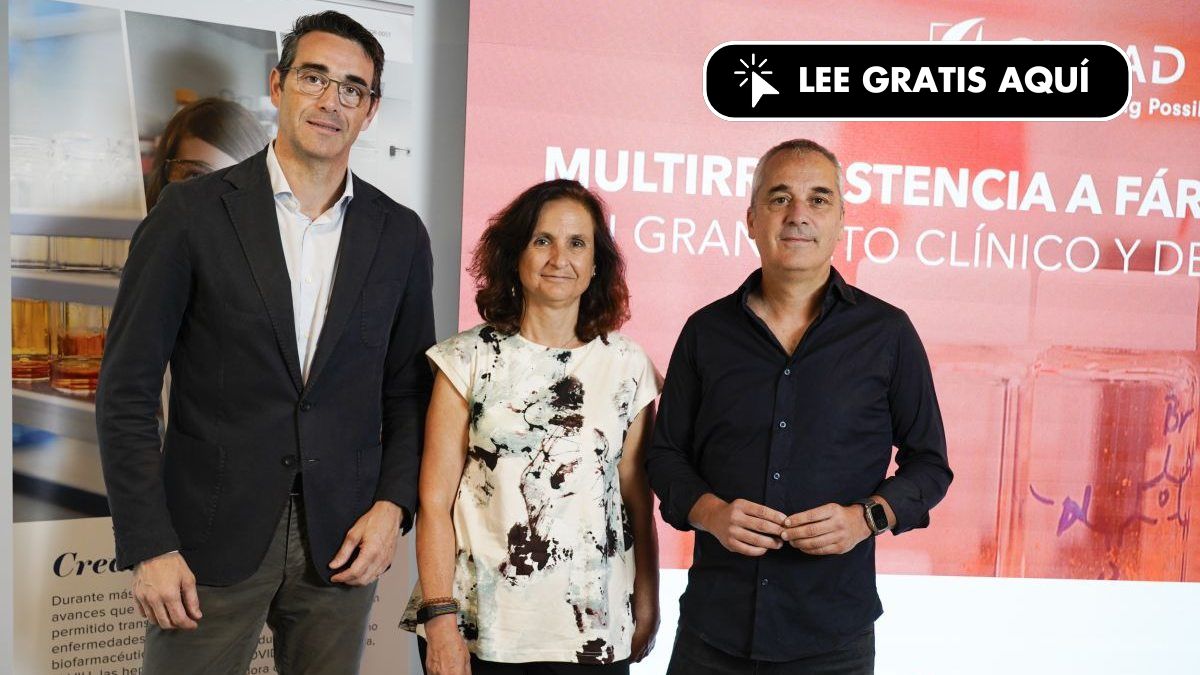Lenacapavir becomes first drug funded for multidrug-resistant HIV

To date, people with multidrug-resistant HIV have had very few treatment options and a difficult prognosis, meaning they are in a situation of great vulnerability. However, Since July 1, reality has changed for Spanish patients with multidrug-resistant HIV thanks to lenacapavir, the first drug financed in our country, developed by Gilead Sciences, which is administered subcutaneously twice a year.
As stated today Pau Arbos, Director of HIV at Gilead in Spain and Portugal: during the meeting “Multidrug resistance in HIV: a major clinical and public health problem”, “We worked on this drug for a long time, testing more than 4,000 molecules to get to the development of lenacapavir. But having a drug with 83% efficacy in patients with multidrug resistance justified these 16 years.”
The low prevalence contrasts with the serious clinical and public health challenge that multidrug resistance poses. Given the UNAIDS 95–95–95 targets for diagnosis, treatment and viral suppression of HIV, ““Seeing lenacapavir provide additional efficacy in such a small group of patients inspires us to continue to improve and contribute to achieving this goal,” Arbos noted and added that “We can say that this is a new innovation from Gilead that delivers on our commitment to all people living with HIV, especially the most vulnerable and those with the greatest unmet medical needs.”
Spain is the eighth country in the world to fund access to lenacapavir (Sunlenca). joining the United States, France, Japan, the Netherlands, Israel, Switzerland and Italy.
Complex reality
People with multidrug-resistant HIV and unsuppressed viral loads are more likely to suffer from comorbidities, opportunistic infections, progression to AIDS, risk of death and are subject to greater toxicity. According to Dr. Luz Martin Carbonero, a specialist in the HIV department at the University Hospital of La Paz in Madrid: They are given more complex treatment regimens, using more pills and more times a day. “In addition, since the virus is not controllable, “The risk of progression and the risk of transmission increase their psychological problems, which leads to more emotional stress.”
Lenacapavir is a capsid inhibitor with a novel multiple mechanism of action and has no known cross-resistance with other classes of antiretroviral families, as demonstrated 83% effective in terms of virological suppression administered subcutaneously every six months in combination with optimized background treatment after 52 weeks of observation based on the results of the international CAPELLA study.
“Spain was one of eleven countries involved in the development of lenacapavir through CAPELLA,” noted Dr. José Luis Blanco, a specialist in the infectious diseases service of the Barcelona Hospital Clinic and a researcher in the study, which was published in the New England Journal of Medicine in May 2022.
Regarding the arrival of lenacapavir in Spain, the infectious disease specialist notes that this is excellent news. “because it will allow us to control viral replication in people who have not been able to do so because they have a highly resistant virus.” In addition, Dr. Blanco highlighted its interesting mechanism of action. “acting at different levels of the virus’ life cycle,” as well as its dosage, “since it is a subcutaneous injection every six months, which will make it easier to administer to the patient.”
Dr. Blanco also stressed that “It’s important to highlight the tolerability of the drug because it’s really good. “In fact, only one person stopped treatment at 26 weeks due to a mild side effect.”
Healthcare
The effectiveness of the new treatment is having a positive impact on the lives of people living with HIV, helping them achieve and maintain good control of the viral load, so it remains undetectable in blood tests and therefore, they cannot transmit the virus, which also has public health benefits.
In closing, Pau Arbos recalled Gilead’s trajectory in the HIV field, where “We have been in the HIV race for 40 years. Despite this, there are still key needs, and at Gilead we continue to remove barriers so that we can eliminate HIV in the near future.”


